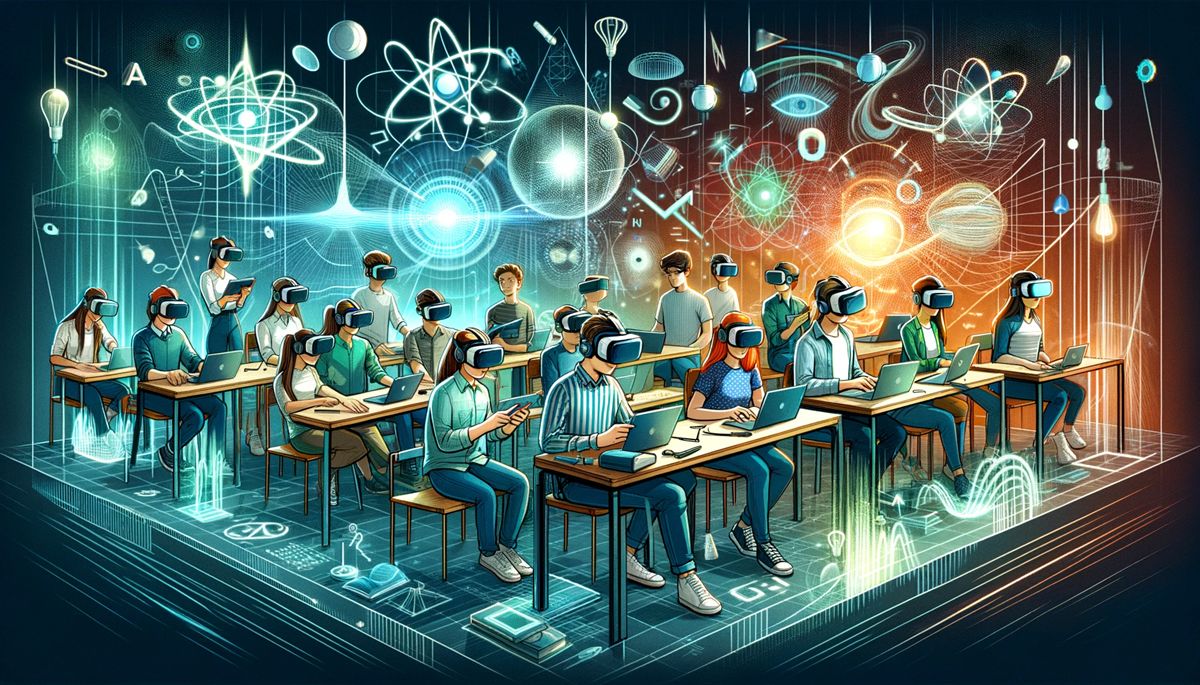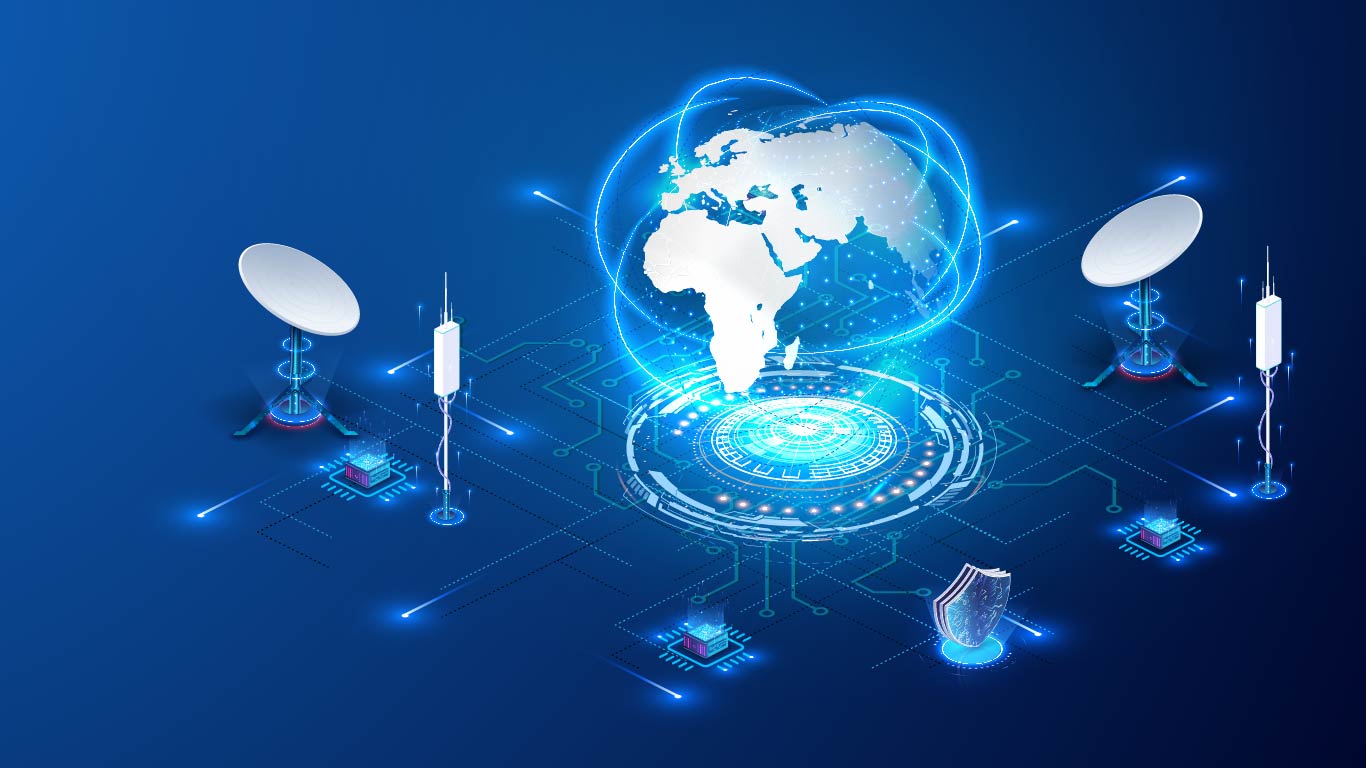How Ed Tech is Enhancing the Quality of Higher Education

In today’s tech age, education is rapidly pacing with the help of digital modes. Even higher education technology offers digital educational transformation solutions. This transformation, in turn, benefits learners across socioeconomic status, age groups and physical locations.
The global Ed-tech market is expected to reach a valuation of USD 605.40 billion by 2027, implying a CAGR of 15.52% from 2021. (Research & Markets).
Fortune Business Insights has estimated the higher education market to touch a valuation of $169.72 billion in 2028 from $85.43 billion in 2021.
As far as Ed-tech companies are concerned, 2021 saw increased investments by 3X, with start-up funding amounts going over $20B across the world. (HolonIQ).
Journey From Traditional Ed to Ed-tech
Technology has integrated into our lives like never before and has impacted both social and business interactions. The educational sector has seen massive technology integration in the past few years.
Educational technology has become part and parcel of the education ecosystem. From teachers to students, all seek out the latest tools to engage and learn from. Institutes are getting more innovative and redefining the use of Edtech in education.
This post discusses technology's impact on the VR for Higher Education sector. We will also cover the new trends and practices that will further benefit this segment.
The Top Trends in Ed Tech

Metaverse, VR, AR (MR) will redefine higher education.
The next iteration of the Internet-the Metaverse, will take higher education into new realms. The Metaverse will shatter the barriers of online education. Powered by 3D, AR and VR technologies, the Metaverse will create an immersive space encompassing the entire higher education ecosystem.
Students of streams like medicine, engineering, geometry or geology can use 3-D models to develop a better conceptual understanding. Similarly, students of art and culture can take virtual field trips to engage with different cultural eras.
In fact, HolonIQ has predicted that by 2025, revenue spent on AR and VR will amount to $12.6Bn in education and learning.
These trends foretell an exciting time for learners. Lifelong learning, superior cognitive skills and deep, immersive technology in college will give the higher education segment the impetus it requires.
Data Analytics, AI and ML are trendsetters too.
The Artificial Intelligence and Machine Learning spending in education will be to the tune of $6B by 2025. They will facilitate and create real-time, personalised learning experiences.
Data-backed analytics will bring in efficiency and increase student and faculty satisfaction. Deploying these technologies will augment the learning experience by identifying pain points and offering resolutions to counter them.
AI can manage repetitive tasks like grading multiple-choice answer sheets, freeing faculty to focus on more creative tasks.
AI and ML are reorienting the higher education sector as they become more human-like. Chatbots are a classic example. Chatbots provide real-time feedback, answer queries, offer customised lesson plans, and most importantly, are available 24/7.
The data can be blended with LMS platforms to empower dashboards and personalise learning journeys. Ed techs are offering innovative solutions to cater to this demand.
"Experience the Revolution: Embrace Ed Tech for a Higher Education Renaissance! Explore How Technology is Shaping Tomorrow's Learning Landscape."
Enhancing Employable Skills and Upskilling
Higher education equips students and makes them career ready. Many universities are now deploying technology to make learning more engaging and relevant and allow students to enhance their employability skills.
Even seasoned professionals are using technology for upskilling to stay relevant and sustain the changes in the new age professions.
In fact, the WEF has observed that more than half of current employees worldwide will need reskilling by 2025.
Ed Tech will offer them opportunities for skilling and upskilling. With technology, employees can access things like digital learning tools, remote learning, personalised learning and even workplace training. They can enhance their skills to gain mastery over their concern areas.
For example, take Virtual Reality. This emergent technology has already been deployed in many world-renowned higher education facilities.
It is highly in demand due to its increased engagement and immersive learning. VR is one of the most cutting-edge technologies required to meet the knowledge and professional current-day needs.
This allows students to gain mastery over a subject in a risk-free zone. Moreover, it is more cost-effective. For example, a surgeon can practise as many times as required without using a cadaver or a physical lab.
VR in classrooms and Labs allow seamless and immersive learning prospects, allowing students to enhance their skills and become workforce ready.
Privacy and Cyber Security Strategies
Cybercrime has risen considerably in the last few years, with the increase in internet use. Student data privacy violations can be harmful to higher education institutions.
Moreover, institutes are under attack for their academic and research work. Hence, cybersecurity should be intricately woven into the digital transformation strategy. It is a challenging scenario and one that warrants a high level of strategic and forward-looking thinking.
 Get the App from Meta Store: Download Now
Get the App from Meta Store: Download Now
Ed Tech Firms are pioneering the Digital Transformation
Digital transformation in education encompasses all digital systems, tools and processes to improve learning.
Solution providers of higher education technology are offering various solutions to meet the supply and demand gaps and fulfil 21st-century education needs.
With more sophisticated infrastructure, institutes are working on expanding student admissions, offering more immersive learning opportunities and enhancing their global reach.
Most importantly, they are deploying technology to create a highly-skilled workforce adept at their professions.




